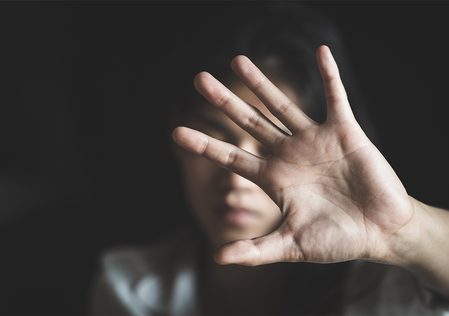This is AI generated summarization, which may have errors. For context, always refer to the full article.
The Supreme Court maintains that the survivor’s late reporting of the incident should not be taken against her
Trigger warning: This article contains a description of rape.
MANILA, Philippines – The Supreme Court (SC) affirmed the reclusion perpetua sentence that a regional court handed down to a husband and wife for the rape of their 14-year-old daughter in 2008.
The SC 2nd Division denied the parents’ plea to reverse the ruling issued by the Pangasinan Regional Trial Court (RTC) that found them guilty of qualified rape. The Court of Appeals (CA) upheld this decision as well.
“The Court stresses that incestuous rape is not a simple criminal offense that can easily be fabricated, especially in this case where both parents are accused,” the SC said in a 13-page decision.
The SC upheld the trial court and CA’s award of P300,000 to the victim, with alias AAA262581, as civil, moral, and exemplary damages.
“To our mind, a daughter like AAA262581 would not have imputed false allegations against her own parents, on whom she depends for support, were it not for her desire to seek justice and to stop the sexual abuse that she had to endure at a very young age,” the SC said.
The father’s joint verdict with his wife in this case is distinct from other rape charges he committed against the victim when she was already of legal age. These were raffled off to another court branch.
In the survivor’s complaint, she narrated that one evening in December 2008, her mother woke her up and told her to lie down next to her father.
As she obeyed, her mother restrained her by the feet while her father raped her. Even as she cried out of pain, her mother continued to hold her feet down.
After the rape, the parents ordered her to go back to where she was sleeping. The survivor said she did not immediately report what happened because she was afraid of her father.
Nine years later, in May 2017, she told the story to her aunt — her mother’s sister — who helped her report it to the police.
In February 2019, the Pangasinan RTC held that the victim’s testimony was “positive and straightforward,” and her claims were corroborated by a medico-legal report that showed evidence she was raped.
The RTC said the parents’ defense and alibi were weak, and failed to debunk the survivor’s testimony.
The CA upheld the conviction in April 2022, and said that the survivor’s failure to immediately report the incident should not be taken against her.
Even if the mother did not commit the rape herself, the SC still ruled her guilty as a conspirator.
“A wife helping her husband rape another person is not new, and our jurisprudence is replete with cases of fathers raping their daughters,” the High Court said.
The SC added that while mothers helping their husbands rape their own daughter is uncommon, “it can still happen.”
“Its inconceivability cannot reduce the credibility of the victim’s testimony nor make her words less true,” the SC said. – Rappler.com




































